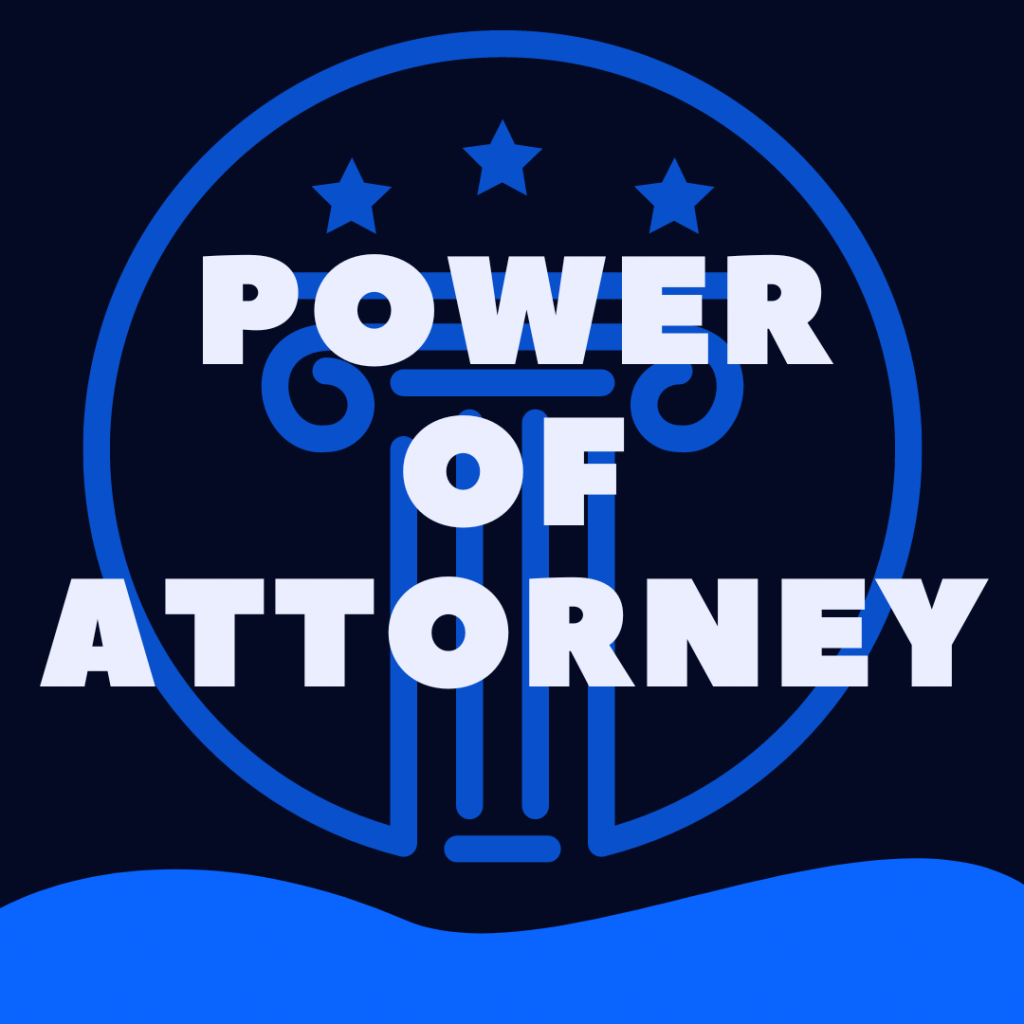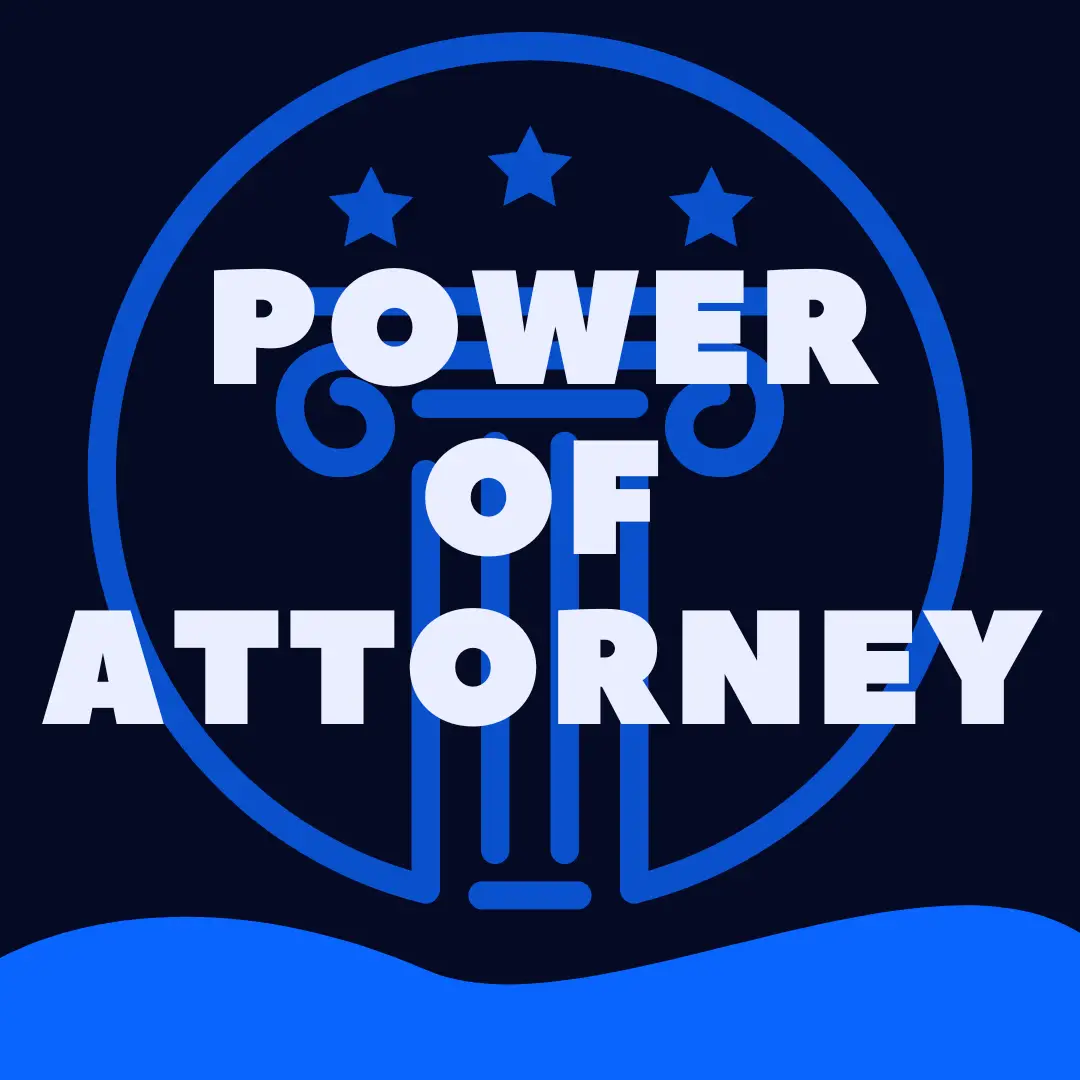Answer: Most of the time, your power of attorney cannot appear in court for you.
But in limited circumstances, your POA may appear for you.
In the article that follows, we’ll explain.
Can My Power of Attorney Go To Court For Me?
Disclaimer
The contents of this web page are for informational purposes only, and nothing you read is intended to be legal advice. Please review our disclaimer about law/legal-related information on this website before taking action based upon anything you read or see.
What Is a Power of Attorney?
The power of attorney relationship allows your nominated person to step into your shoes in the circumstances you describe.
It is considered an “agency” relationship.
A power of attorney form could allow your POA to legally:
- pay your bills
- contact your mortgage company
- sell your assets
- spend your money
- use your social media
- vote your stock
- open your mail
- and more…
It is often recommended by estate planning lawyers to protect a person and their assets during times of bad health or incapacity.
The power of attorney relationship can be temporary, for a limited period of time, or unlimited.
You can usually terminate the power of attorney relationship at any time, for any reason. If you do not have capacity to terminate the POA, the court may end up getting involved to provide someone with the power to take care of the incapacitated person.
Power of the POA
While it can be drawn up to be so broad that the person with your POA could take all of the actions that you could (pay bills, make decisions, get information), it doesn’t give your POA the power to be you.
While the POA form could allow the POA to appear in court for you, the POA form does not govern the court and does not overcome the laws of your state.
Most court proceedings require your personal appearance, not just the appearance of someone with power to make legal decisions.
While some may disagree, we would argue that this means that you cannot even send your POA to court with your lawyer.
When Your POA Could Appear For You
There are limited circumstances when your power of attorney could appear for you.
In criminal cases, for example, the court often allows the “waiver of personal appearance” of the defendant at hearings when the defendant’s lawyer is planning to appear and the hearing is not substantial (usually administrative).
Defendants can file motions to allow their attorneys to appear without them at misdemeanor hearings (or even trials), or to appear on paper.
In civil cases, with permission, the court may allow the non-appearance of a party so long as the decision-makers who are necessary for the resolution of the disputed issue are present.
But in general, a non-appearance can only occur by request and with the permission of the court.
If a POA were to show up to court in place of a party who had been lawfully served with a signed POA form, the non-appearing party would be treated as though they did not appear at all.
In any event, the Power of Attorney cannot act as your lawyer (unless they are actually a licensed practitioner).
Attorney-in-fact is different than an attorney-at-law.
If Capacity Is The Issue
If the reason that the appearance of a POA is necessary at court is that the party does not have capacity (meaning the person is in a coma, has dementia, or is otherwise unable to understand/participate), the court will require additional steps before the case can move forward.
In most situations, the court will require that someone (perhaps the POA) initiate a guardianship proceeding, which would then allow the case to proceed against the party lacking capacity (physical or mental).
Otherwise, the court might not let the case proceed until the party needing the POA is able to once again understand and participate.
How a POA Can Help During Legal Proceedings
While a POA can’t appear in court for you, the POA can participate for you as the case proceeds, such as:
- obtaining case information
- speaking with the attorney and staff
- hiring a law firm or lawyer
- making major decisions like whether to accept a settlement
- making major decisions like whether to file a claim (or not)
- making major decisions like whether to pay for small/large case expenses
- and more…
This is generally subject to the attorney’s comfort and willingness to work with the POA rather than directly with the client.
Wrap Up
Want to learn more about your criminal justice system?
Browse our free legal library guides for more information.
You might also like:
- How to Prepare For Law School In High School
- Can My Power of Attorney Go To Court For Me?
- Is It Illegal To Change Lanes in an Intersection In Mississippi?
- Is It Illegal For a 17 Year Old To Date a 13 Year Old?
- How to Choose a Wrongful Death Attorney
- Waiver of Formal Arraignment (Explained)
- Are Arraignments Public Record?
- How To Avoid Jail For a Misdemeanor
- Are Prosecutors Elected or Appointed?
- What Does It Mean If a Charge Was Amended?


